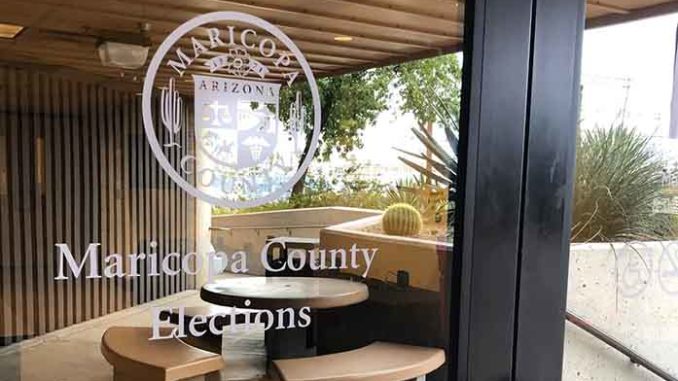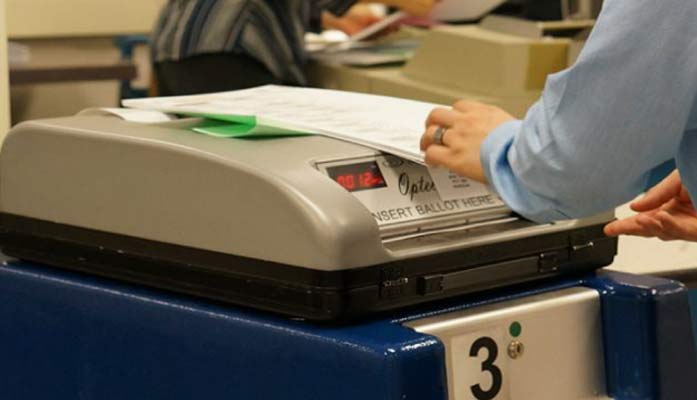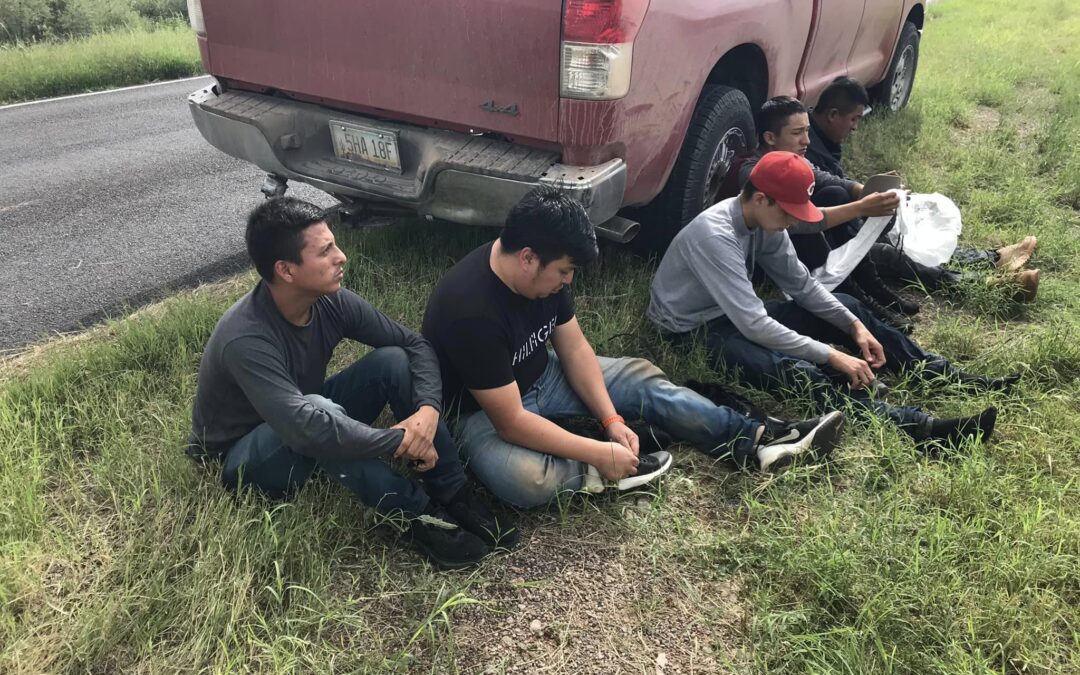
by Corinne Murdock | Oct 26, 2022 | News
By Corinne Murdock |
A political action committee (PAC) financed by Democrat billionaires is making good on its promise to spend millions to ensure Republican gubernatorial candidate Kari Lake’s defeat.
The Republican Accountability PAC, an advocacy arm of the Republican Accountability Project (RAP), spent nearly $3.7 million on advertising against Lake according to trigger reports on the secretary of state’s campaign finance website. They began spending their millions a week after the primary election, and haven’t spent for or against any other candidates.
Those expenditures break down as follows: Trilogy Interactive, over $1 million; Google, over $840,000; Longwell Partners, over $441,000; Tegna, over $284,000; Scripps Media, nearly $245,000; Fox Corporation, nearly $230,000; Gray Media, over $222,000; Meta Platforms, over $202,000; Allen Media Broadcasting, over $100,000; Clear Channel Outdoor, over $83,000; and Extreme Reach, over $1,000.
It appears that one of the RAP leaders benefits greatly from the PAC money. Sarah Longwell, RAP executive director and the PAC’s treasurer, owns Longwell Partners. In addition to the over $441,000 her communications firm received for anti-Lake advertising, her firm has received at least over $554,000 for advertising and political consulting according to the Federal Election Commission (FEC).
Longwell, a self-described “Never Trumper” is also the Defending Democracy Together co-founder (the parent organization behind RAP, and one of the top-spending dark money groups in the 2020 election), The Bulwark publisher, and former Log Cabin Republicans national board chair.
The only media company with an Arizona address that received Republican Accountability PAC money was Tegna. The listed address is the building that houses 12News and the Arizona Republic. Tegna was formerly part of Gannett before the media giant split into two publicly traded companies in 2015: Tegna, the broadcasting and digital operations, and Gannett, the publishing operations. Gannett shareholders retained the shares that became Tegna shares.
Gannett’s primary shareholder is BlackRock, the world’s largest asset manager and one of 100 strategic partners for the World Economic Forum (WEF). The WEF is the globalist lobbying organization that invented the social credit score system similar to one used currently by the Chinese government, called ESG investing or scoring, short for “Environmental, Social, and Governance” scoring.
Tegna’s board of directors consists of major corporate players representing nearly all sectors: its chairman is also a president of Dell Technologies, while other members include the executive vice president of Pfizer, the CFO of global sports entertainment giant DAZN Group and former Morgan Stanley executive, the former vice president of Coca-Cola, the former president of HBO, the former vice president and CFO of E*Trade, the president and CEO of WNET and former president of NBC, and former vice president of Time Warner Cable and HBO.
Last year, Maricopa County Recorder Stephen Richer and Board of Supervisors Chairman Bill Gates teamed up with RAP for a video speaking against the Arizona Senate’s audit of the 2020 election. About a month before Richer and Gates released their RAP video, RAP’s executive director Sarah Longwell donated $250 to Richer’s PAC, Pro-Democracy Republicans of Arizona.
A week before Longwell’s donation, Richer’s PAC also received $100 from Mindy Finn (formerly Feinberg), the founder of another self-described Never Trumper advocacy group called Stand up Republic. Both Defending Democracy Together and Stand Up Republic receive funding from nonprofit networks associated with Pierre Omidyar, eBay’s founder, a partner organization of the lucrative leftist dark money network originating with Arabella Advisors.
The other top PACs spending millions against candidates are the Future Forward PAC and MoveOn.org PAC: both leftist dark money groups, both spending to defeat Trump-backed Arizona candidates. In addition to Lake, they spent to defeat attorney general candidate Abraham Hamadeh and secretary of state candidate Mark Finchem.
Corinne Murdock is a reporter for AZ Free News. Follow her latest on Twitter, or email tips to corinne@azfreenews.com.

by Corinne Murdock | Oct 26, 2022 | News
By Corinne Murdock |
One lawmaker has a solution to the ballot drop box watcher controversy in Maricopa County, but the recorder says they won’t be modifying their operations.
State Senator Michelle Ugenti-Rita (R-Scottsdale) proposed removing the two controversial drop boxes situated outdoors, leaving voters with the drop boxes located indoors. However, Maricopa County Recorder Stephen Richer told AZ Free News that removing the two controversial drop boxes would be surrendering to cancel culture, not assuaging voter tensions. Richer explained that outdoor drop boxes enabled a 24/7 option for returning early ballots, whereas drop locations inside government buildings are limited to business hours.
“I don’t believe in surrendering to cancel culture. I don’t believe that we should cave to intentionally disruptive behavior (as some of the watchers appear to be; others not). I don’t think ASU should cancel speaker events because some people protest,” said Richer. “I don’t think the county should change the voting plan that has been in place for many months now — and that worked successfully for the August primary — because of these people.”
Ugenti-Rita proposed her solution on Sunday. By Monday, the Democratic Party’s top election lawyer renowned for his role in the Russiagate hoax, Marc Elias, had jumped into the Arizona elections ring again — ensuring that Arizona’s elections are once more the center of national attention.
Outdoor drop boxes have been the source of numerous complaints of voter intimidation and voter fraud this election season. Secretary of State Katie Hobbs announced in a press release on Monday that her office referred six complaints of voter intimidation to the Department of Justice (DOJ).
Those seeking to report voter intimidation may call 1-877-THE-VOTE or access Arizona.Vote. Those seeking to report voter fraud may submit their complaint to the attorney general here.
Elias sued to stop Arizona’s ballot drop box watchers on behalf of the Arizona Alliance for Retired Americans and Voto Latino against Clean Elections USA. The nonprofits allege that the drop box surveillance amounts to voter intimidation prohibited by the Voting Rights Act (VRA) and the Ku Klux Klan Act of 1871.
Elias and the two leftist nonprofits have been busy resisting Republican-led changes to election law. In August, the pair sued to stop SB1260, a bill enacted in June to clean up the state’s voter rolls. The Arizona District Court issued a temporary injunction against provisions of the bill enforcing voter registration cancellation for those who register to vote in another county and issuance of felony charges against those who facilitate voter fraud, but didn’t block removals from the Active Early Voting List (AEVL). Elias’ team appealed.
In March, Elias’ law group sued on behalf of Voto Latino as well as Mi Familia Vota against HB2492, a bill signed into law earlier this year requiring proof of citizenship in order to vote (though it won’t go into effect until 2023). The Arizona District Court is hearing that case; at present, the court is considering the state’s motion to dismiss.
In that case, Elias and the nonprofits have the Biden administration’s support: in July, the DOJ sued the state over the new law. DOJ Assistant Attorney General Kristen Clarke claimed that Arizona’s required proof of citizenship to vote was “onerous” and “unnecessary.”
Prior to this year, Elias only represented Voto Latino in one other case: a 2020 lawsuit against Hobbs to extend the state’s mail-in ballot deadline. Although Elias’ team was unsuccessful in extending the mail-in ballot deadline, they did get Hobbs to expand Hispanic voter outreach efforts and increase funding for early voting across different counties.
Corinne Murdock is a reporter for AZ Free News. Follow her latest on Twitter, or email tips to corinne@azfreenews.com.

by Corinne Murdock | Oct 25, 2022 | News
By Corinne Murdock |
On Monday, Maricopa County began the tabulation of approximately 168,000 early ballots. The county estimated that around 150,000 to 250,000 early ballots will be dropped off on Election Day, with 98 percent of ballots reported by November 11.
The Maricopa County Elections Department counts all early and provisional ballots. Vote Center tabulators handle Election Day ballots. As the county noted, state law allows for early ballot tabulation prior to Election Day.
Bill Gates, Maricopa County Board of Supervisors chairman, assured voters in a press release that the tabulators were vetted and staff were bipartisan.
“Regardless of who wins or loses, voters can trust in the results that our election processes, procedures, and audits provide,” stated Gates.
The county noted that voters should be aware of the possibility of an automatic recount following the publication of final results. SB1008 increased the automatic recount threshold from .001 to .5 percent. If that occurs, the final election results would be available by late December at the earliest.
The county’s detailed explanation of its processes, prediction of when vote counting ends, and assurance of election integrity precautions are likely part of efforts to alleviate tensions after nearly two years of vocal voter distrust in elections — especially those in Maricopa County.
County leadership condemned citizens surveilling ballot drop boxes, saying that it amounts to voter intimidation. The county encouraged citizens to become poll workers or official party-affiliated observers rather than surveil drop boxes.
“Uninformed vigilantes outside Maricopa County’s drop boxes are not increasing election integrity. Instead they are leading to voter intimidation complaints. Although monitoring and transparency in our elections is critical, voter intimidation is unlawful,” stated the county.
Video surveillance of the drop boxes exists, but isn’t always reliable. As AZ Free News reported in August, the county failed to record an unstaffed drop box for three weeks — a mistake only discovered by the county after a records request for the video feed by the Maricopa County Republican Committee (MCRC).
Maricopa County Recorder Stephen Richer shared that approximately 1.9 million early ballots were mailed, accounting for around 77 percent of voters (over 2.4 million). Richer added that the county processed over 25,000 new or updated voter registration applications.
Election results will be made available here starting at 8 pm on Election Day, and updated every night. Voters can track and verify their ballot status by texting “JOIN” to 628-683 or by visiting BeBallotReady.Vote.
VISIT MARICOPA COUNTY’S ELECTION FAQS WEBSITE
Corinne Murdock is a reporter for AZ Free News. Follow her latest on Twitter, or email tips to corinne@azfreenews.com.

by Corinne Murdock | Oct 25, 2022 | News
By Corinne Murdock |
A woke black “pastor” from California claimed Democrat gubernatorial candidate Katie Hobbs isn’t racist, prompting Talonya Adams, the staffer twice vindicated in court for racial discrimination she faced under Hobbs, to rebuke him.
Robinson, a Californian and former Arizonan who claims to be a Christian pastor despite violating Scripture, claimed Hobbs’ actions were mistakes.
“Contrary to popular beliefs, Katie Hobbs isn’t racist. If she was, I would let you know,” tweeted Robinson. “She made mistakes. We all do. AZ, she needs your vote on Nov 8th!”
In response, Adams said Robinson’s claim was a lie and quoted a Bible verse condemning liars.
“This is a lie Redeem,” wrote Adams. “Proverbs 12:22: Lying lips are an abomination to the Lord, but those who act faithfully are his delight.”
Robinson came to Phoenix earlier this week to do voter outreach on behalf of Democratic candidates.
Over the past decade until last year, Robinson was involved throughout Arizona as a “pastor” at various churches, a political activist, and politician. Robinson served as a “pastor” with All Nations Temple AME Zion Church in Tucson, then Ebenezer Church in Phoenix.
Robinson also served as a field director for the Arizona Democratic Party; a southwest organizing manager for Need to Impeach, a PAC to oppose former President Donald Trump founded and principally funded by Democratic dark money kingpin Tom Steyer; a state deputy political director for Steyer’s 2020 presidential run; a campaign manager for the scandal-ridden, leftist dark money nonprofits Arizona Coalition for Change/Our Voice Our Vote; founder of the Tucson chapter of Black Lives Matter (BLM); the Black Engagement Committee founder and Sergeant At Arms for the Maricopa County Democratic Party.
The “sex-positive” Robinson was also a failed 2018 Democratic candidate for the Arizona Senate. His candidacy took a hit from news coverage of domestic violence charges filed by his ex-girlfriend, with whom he had a child out of wedlock. (He has a total of three daughters, who he says live in Arizona while he lives in California). The court later dismissed the charges against Robinson because the prosecutor’s office wasn’t prepared to proceed.
It appears that Robinson’s latest efforts are a fusion of alleged “Christianity” and political activism: All Souls Movement, a nonprofit he founded and directs. Robinson pays himself to do “paid partnership” social media posts for his nonprofit; earlier this month, he posted a video on Instagram telling people to “not be an a**hole” and claiming that being a Christian doesn’t mean abstaining from sin. Notably, Robinson didn’t cite any Scripture to justify his claims.
“Jesus’ ministry was as simple as it. Literally, His ministry on earth was telling us don’t be an asshole. With the richer getting richer and poor getting poorer, and white supremacy going unchecked, and racism out of control, and homophobia, xenophobia, and transphobia, and sexism just out of control,” said Robinson. “We need to hear daily. Don’t be an asshole. That’s what true holiness is about. It’s not about long dresses and abstaining from certain things. It’s about treating other people right so that the world can be a better place.”
Corinne Murdock is a reporter for AZ Free News. Follow her latest on Twitter, or email tips to corinne@azfreenews.com.

by Corinne Murdock | Oct 25, 2022 | News
By Corinne Murdock |
The Biden administration closed out its 2022 fiscal year with close to 2.4 million border encounters: the highest ever recorded in one year.
According to the Customs and Border Protection (CBP) data released last Friday, the administration also made history with its total September encounters: over 227,500. This total doesn’t reflect estimated “gotaways”: those who escape without apprehension.
With this historic influx of illegal immigrants came an unprecedented number of terrorists. Nearly 100 illegal immigrants apprehended were on the Terrorist Screening Database (TSDB). As Fox reporter Bill Melugin noted, that’s nearly quadruple the number of terrorists caught crossing illegally from the past five years combined.
A key part of the border crisis is the burgeoning fentanyl crisis. Last month alone, CBP seized enough fentanyl to kill over 220,000 people. Their other seizures indicate that Biden’s lax border policy is lucrative for the cartels: over $4.1 million worth of drugs, firearms, and pesticides, as well as over $11 million worth of narcotics.
CBP data reflects the reality that hard drugs overtook marijuana as the preferred substance of smugglers. Last month, CBP reported over 1,800 pounds of fentanyl seized: over 14,100 pounds for the 2022 fiscal year, and close to 21,600 pounds since President Joe Biden took office. That’s well over double of what was seized between January 2019 and December 2020: just under 10,000 pounds.
While fentanyl trafficking skyrocketed, the overall number of drugs seized by weight decreased. From January 2019 to December 2020, CBP seized just under 1.4 million pounds of drugs (most of which was marijuana, meth, cocaine, fentanyl, then heroin, in that order). From January 2020 to present, CBP seized just under 590,000 pounds of drugs (again, most of which were marijuana, meth, cocaine, fentanyl, then heroin, in that order).
Biden named Vice President Kamala Harris the border czar last March, but Harris did little to address the crisis. It took her three months to visit the border after that, visiting El Paso, Texas in late June, although GOP members of Congress criticized that Harris visited a Border Patrol station miles away from the border crisis playing out along the Rio Grande.
According to a Los Angeles Times tracker of Harris’ schedule, analyzed by the New York Post, the vice president didn’t hold an immigration event in nine months as of May.
Last week, Arizona sued the Biden administration after the Department of Interior (DOI) ordered the state to remove shipping containers and razor wire closing up the border wall gaps. The DOI accused Governor Doug Ducey of committing trespass. Bureau of Reclamation Regional Director Jacklynn Gould promised that the Biden administration was making headway on closing the border themselves.
“That trespass is harming federal lands and resources and impeding Reclamation’s ability to perform its mission,” stated Gould.
In response, Ducey said that his obligation to Arizonans was greater than to the federal government.
“The safety and security of Arizona and its citizens must not be ignored,” stated Ducey. “Arizona is going to do the job that Joe Biden refuses to do — secure the border in any way we can. We’re not backing down.”
On Monday, Ducey announced that the state continued adding onto the border wall over the weekend — starting the day the state sued the Biden administration.
“Arizona isn’t afraid of a challenge. We will not back down. We will protect our state,” tweeted Ducey.
Corinne Murdock is a reporter for AZ Free News. Follow her latest on Twitter, or email tips to corinne@azfreenews.com.

by Corinne Murdock | Oct 24, 2022 | Education, News
By Corinne Murdock |
It appears the costs of pandemic-era remote learning far outweighed the benefits, based on the average student’s comprehension in math and reading.
According to the latest National Assessment of Educational Progress (NAEP) data released Monday, Arizona students were middle of the pack in a nationwide decline. The state’s scoring revealed severe learning losses in math and nominal losses in reading.
READ HERE: ARIZONA REPORT CARD
Nationwide, the NAEP report revealed a negative correlation between remote learning and learning loss. Chalkbeat displayed the correlation through graphs. Public schools and large cities experienced the greatest decline in math scores.
READ HERE: 2022 NAEP FULL REPORT
In a press release, National Center for Education Statistics (NCES) associate commissioner Daniel McGrath warned that learning losses in math could limit STEM candidates.
“Eighth grade is a pivotal moment in students’ mathematics education, as they develop key mathematics skills for further learning and potential careers in mathematics and science,” said McGrath. “If left unaddressed, this could alter the trajectories and life opportunities of a whole cohort of young people, potentially reducing their abilities to pursue rewarding and productive careers in mathematics, science, and technology.”
The scores come after several years of Democratic leaders advocating for school closures amid the pandemic.
Julie Gunnigle, Democratic candidate for Maricopa County attorney, claimed in an August 2020 interview that remote learning would make kids smarter and stronger. Throughout the pandemic, she insisted that schools be restructured to prevent COVID-19 transmission before reopening.
“I think these kids are going to come out a lot stronger than, for example, my generation is. Like, having to cope with all of this. And a lot smarter, too,” said Gunnigle. “They’re going to be really prepared to brave this, well, brave new technological world.”
Last October, Education Secretary Miguel Cardona told NPR that the number of school age-youth with mental health issues rose from 13-22 percent to 80 percent over the course of the pandemic. Last December, Surgeon General Vivek Murthy reported that the pandemic caused a mental health crisis in the nation’s youth.
“The COVID-19 pandemic further altered [youth] experiences at home, school, and in the community, and the effect on their mental health has been devastating,” stated Murthy.
Kathy Hoffman, incumbent Arizona Department of Education (ADE) superintendent, advocated for remote learning as recently as January. Like Gunnigle, Hoffman insisted that preventing COVID-19 illness was more important than an in-person education.
Corinne Murdock is a reporter for AZ Free News. Follow her latest on Twitter, or email tips to corinne@azfreenews.com.






